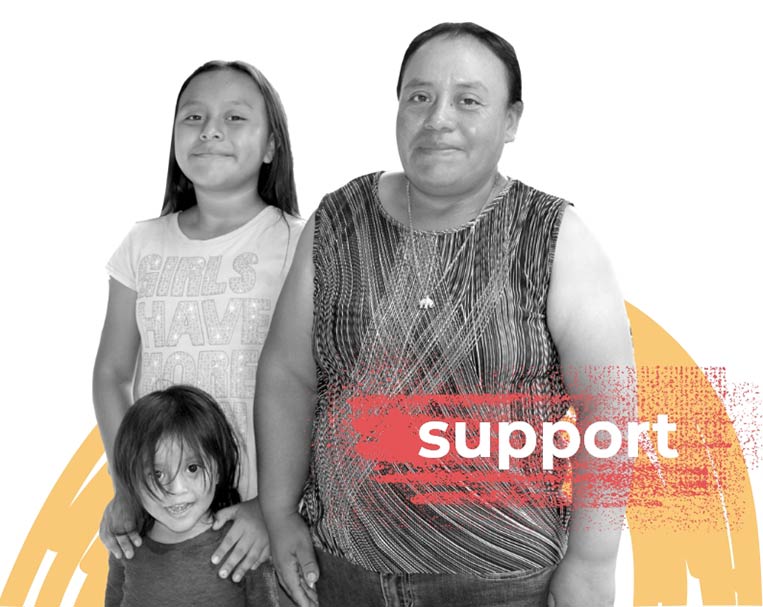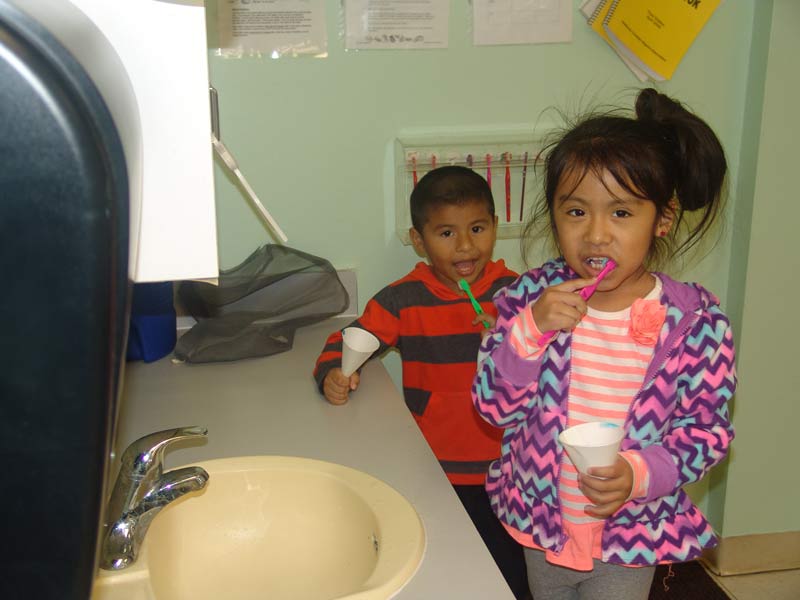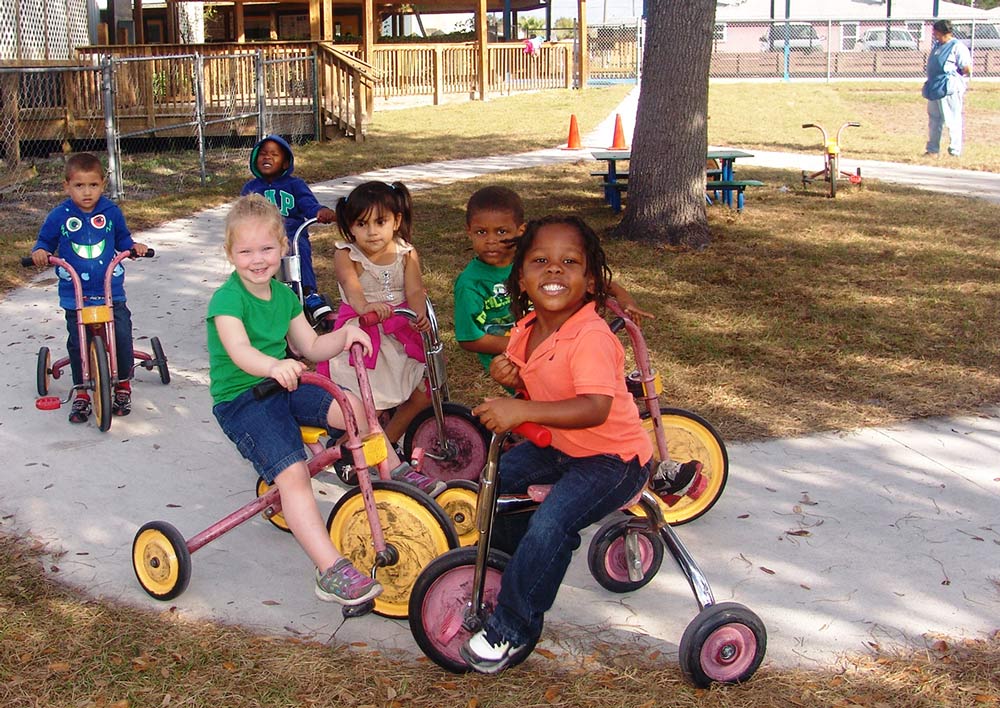
The most fertile time for learning in a child’s life is before age 5. That’s why RCMA provides ways for families to get their small children the education they need during these crucial years of development. Beyond just learning, RCMA helps ensure families and children are cared for as a whole.

The Head Start Programs at RCMA are comprehensive child-development programs that serve children from birth to age 5, pregnant women, and their families. As Florida’s largest single provider of child-care services, we even offer Voluntary Pre-K programs for children in 21 rural communities.
We believe the health and safety of children is an essential element of education. With the help of contracted community partners and the Child Care Executive Partnership, we help low-income families get the care they need so their children can start off strong.
All Head Start Programs are comprehensive child-development programs that serve children from birth to age 5, pregnant women and their families.
The programs strive to increase the school readiness of young children in low-income families.
Among the almost 7,000 children served annually by RCMA, approximately: 1,700 are in Migrant and Seasonal Head Start. The Migrant and Seasonal Head Start program provides child care and a comprehensive program of health, parent involvement, and social services for preschool children of low-income migrant and seasonal farm workers.

There are four areas of service offered:
Encourages parents to observe their children and to participate with them in group activities. Family Support Workers are bilingual and have work schedules that accommodate families’ needs. The program develops and maintains strong community partnerships to ensure service delivery.
Parents have opportunities for involvement in every aspect of the program. A Parent Policy Committee is active in every center, and at the state level, sharing governing responsibilities with agency boards of directors. At the centers, parents participate in literacy activities with their children, and attend other educational sessions.
Provides a secure, stimulating environment in which children are helped to develop physically, emotionally, mentally, and socially. Classrooms must comply with state licensing standards and Head Start Performance Standards, offering full-time child care for children from 6 weeks to 6 years of age. The education program offers opportunities for active learning experiences for all ages. Teachers of 3, 4, and 5 year old children implement the High Scope curriculum.
In classrooms for infants and toddlers, teachers follow the methods of High Scope curriculum for infants and toddlers. The philosophy of respectful caregiving allows babies to develop at their own inherent pace, while providing them emotional support in a non-restraining physical environment.
Collaborate with the Migrant Health Program, Public Health Departments, and other health service providers in the community to ensure children are up-to-date on a schedule of preventive and primary care – including medical, dental, immunization and nutrition screening, and exams.When children need further assessment, treatment, or therapy, follow-up care plans are developed in consultation with parents, and families are referred for services. Nutritionally balanced and culturally relevant meals are served to the children and provided, in part, through the USDA Child and Adult Care Food Program.
Bilingual mental health consultants are available to work with staff, parents, and children to promote emotional well-being to offer training and to identify local resources when referrals are needed.
Offered to children with disabilities. They receive comprehensive and individualized services, designed and implemented in partnership with the family and the providers of services in each child’s community. These services are developed to build on each child’s capabilities and strengths.
Head Start programs promote the school readiness of young children from low-income families by supporting the comprehensive development of children from birth to age 5.
Head Start and Early Head Start programs offer a variety of service models, depending on the needs of the local community. Often programs are based in Head Start centers and schools. Other programs are located in child care centers and family child care homes. Many programs offer home-based services, in which a staff person visits children in their own home and works with the parent as the child’s primary teacher.
Head Start began as a program for preschoolers, and today 3- and 4-year-olds make up over 80 percent of the children served by Head Start grants each year. Early Head Start serves pregnant women, infants, and toddlers. Early Head Start programs are available to the family until the child turns 3 years old and is ready to transition into Head Start or another pre-K program.

Head Start programs support children’s growth and development in a positive learning environment through a variety of services, which include
Provides subsidized early childhood education and services to eligible children and families of the seasonal and migrant farmworker and rural poor community.
Florida’s voluntary pre-kindergarten (VPK) program began in 2005, to improve reading readiness and early literacy skills for 4- year-old children prior to kindergarten.
RCMA, the largest single provider of child-care services in Florida, now offers VPK services in 21 rural communities. Like other children RCMA serves, most of those enrolled in VPK speak English as a second language, if at all.
With a mission of hiring staff and teachers from the communities served, RCMA already employs a majority of bilingual staffers. Many of our employees are former migrant farm workers who acquired their child development credential, family development credential, associate’s degree or bachelor’s degree after joining RCMA.
Serving a large migrant population, plus other year-round farm and low-income families, RCMA offers the 540-hour VPK program option during the typical academic year and a more condensed, 300-hour summer program in June and July.
This way, even though some children arrive late and leave early, they still receive the required coursework, which is essential to their success later in kindergarten and elementary school.
Child Care Executive Partnership (CCEP) program is a public/ private partnership program that extends early childhood education and services to working poor parents.
RCMA has recognized community partners that provide services to children and families: